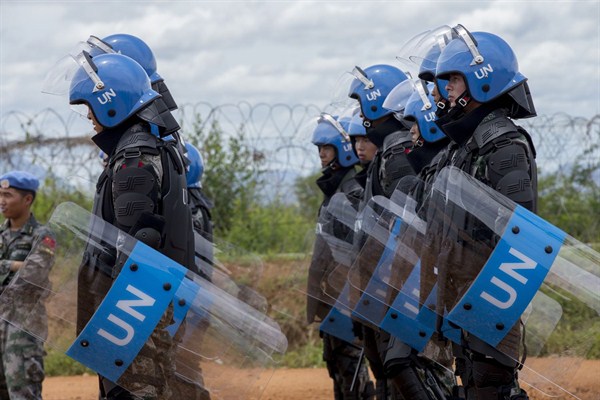Policy papers from the United Nations rarely make for scintillating reading. Last week, Secretary-General Ban Ki-moon released “Uniting Our Strengths for Peace,” a new report by an expert panel on the future of peace operations. Running to over 90 pages and full of familiar bromides such as “the universal legitimacy of the United Nations is one of its greatest strengths,” this does not at first glance seem like an exceptionally enticing text. On closer inspection, it proves to be a subtly subversive summary of what is wrong with peace operations, and indeed the entire U.N., today.
Ban convened the panel of 16 U.N. veterans, led by former Timorese President Jose Ramos-Horta, last fall in response to rising fears about the state of U.N. missions.
The organization, which currently has over 100,000 soldiers and police officers in the field, has been burned by a series of ugly crises in recent years. In South Sudan, many U.N. troops have refused to leave their bases as the country has slumped into prolonged anarchy. In northern Mali, scores of poorly equipped African peacekeepers have been killed by Islamist terrorists. Racing to keep up with these crises, the U.N. secretariat has struggled to find enough troops and military assets to sustain its missions.

